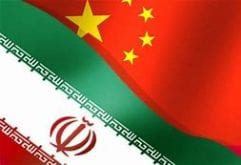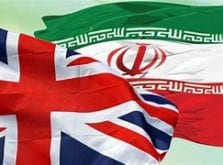Radiofarda – More than 100 Iranians activists and well-known personalities have issued a statement calling for direct talks between Iran and the United States.
Referring to the positive global response to President Donald Trump’s meeting with Kim Jong Un of North Korea, as well as the precarious situation in the Middle East, the signatories to the statement have called for direct talks between Tehran and Washington without setting any pre-conditions.
The signatories include Gholamhossein Karbaschi (former governor of Isfahan Province and Tehran mayor), Abolfazl Bazargan (son of the first prime minister of the Islamic Republic), Ahmad Montazeri (a mid-ranking cleric and the son of late Ayatollah Hossein Ali Montazeri, the dismissed heir apparent of the Islamic Republic’s founder, Ayatollah Rohullah Khomeini), Jalal Jalalizadeh (a Kurdish former member of the parliament), former Tehran City Councilor Sadiqeh Vasmaqi, former reformist MP Jamileh Kadivar and former members of the Fedayeen Khalq Marxist group Ali Keshtgar and Behrouz Khaleeq.
A sizable number of those on the list are current or former regime insiders, some with links to those who seized the U.S. embassy in Tehran in 1979, an event that led to the severing of ties between Tehran and Washington, and a few leftists whose ideology is marked with opposition to the United States.
According to the pro-reform website Zaytoun, the positive reaction of a significant part of the world toward the recent meeting between Trump and Kim shows that “most of the people across the world are in favor of any act supporting the safety and security of humankind.”
The statement issued on June 16 insists that the perilous and precarious situation of the region needs a serious and responsible resolution to the current crisis-ridden relations between Tehran and Washington.
While regretting the “missed chances” for improving ties during Barack Obama’s presidency, the statement said, “Regardless of the White House’s psychological wars, [Tehran] in a courageous resolution should have declared itself ready for talking directly to the USA to take a step toward addressing the problems.”
Similar proposals calling for direct talks between Tehran and Washington have been tabled in Iran but all of them were categorically rejected by Supreme Leader Ayatollah Ali Khamenei.
One of the oldest calls for direct talks between Iran and the U.S. was made by -then- Vice-President Ataollah Mohajerani in an article in the moderate daily newspaper Ettela’at in 1990 in which Mohajerani demanded direct talks between the two countries’ officials to settle their disputes.
Khamenei at the time called the author “a simpleton” who was “intimidated” by the United States’ power, although in an extremely rare apology he later explained that he “did not mean to insult” Mohajerani. However, Khamenei further stressed that he would not take Mohajerani’s “brotherly advice.”
During the past weeks, some political analysts have opined that under financial and political pressure Khamenei might show the kind of “heroic flexibility” he displayed shortly before Iran’s deal with the west in 2015 and agreed to limit Iran’s nuclear program against financial concessions from the West.
Former U.S. President Obama, before concluding the Joint Comprehensive Plan of Action (JCPOA), or Tehran’s nuclear deal with world powers, had expressed regret that Iran defines itself by its feud with the United States.
 Shabtabnews In this dark night, I have lost my way – Arise from a corner, oh you the star of guidance.
Shabtabnews In this dark night, I have lost my way – Arise from a corner, oh you the star of guidance.


